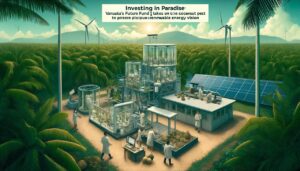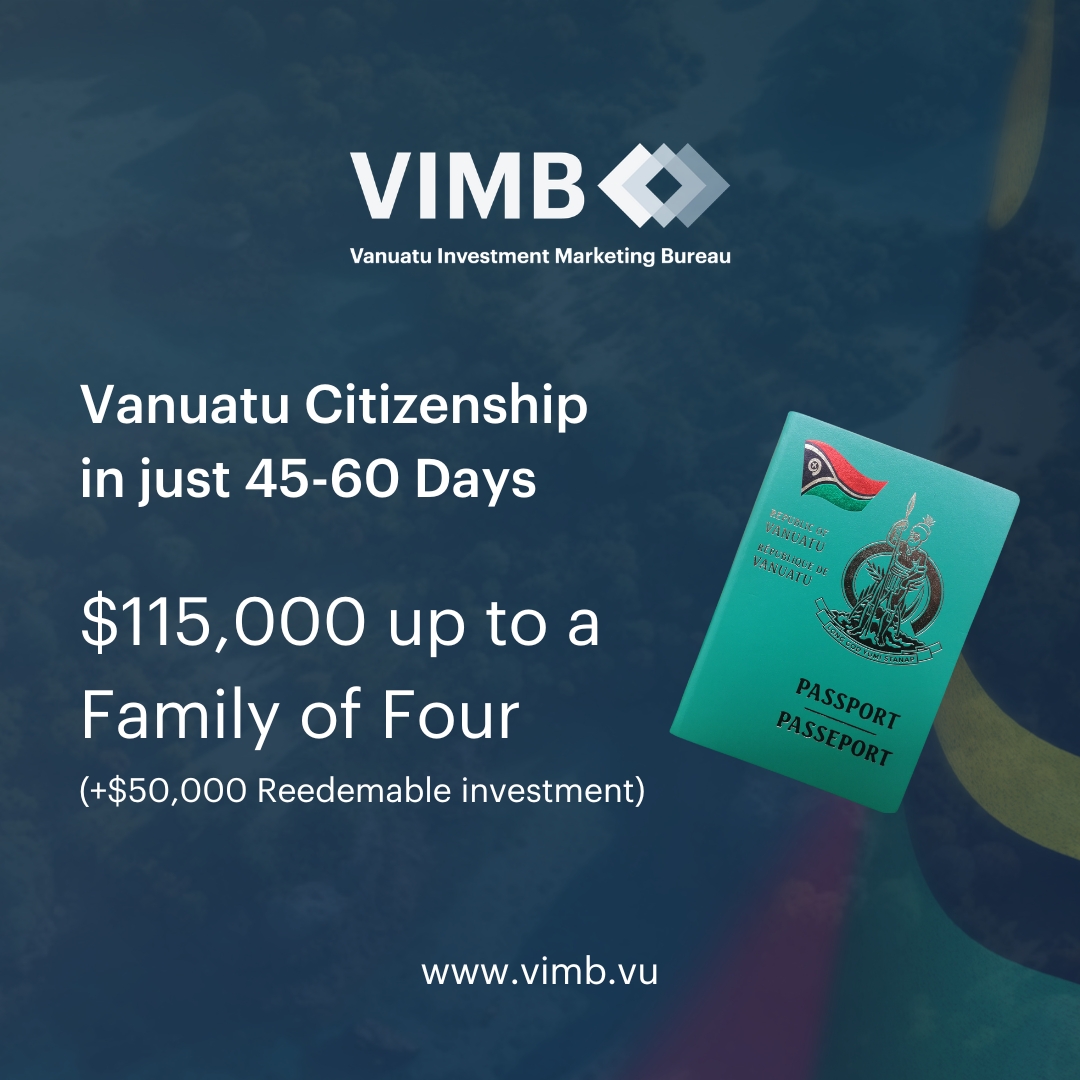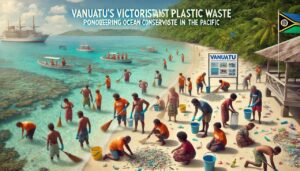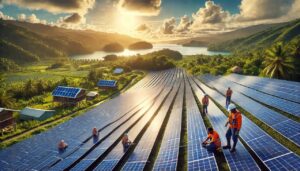In Vanuatu’s Climate Battle, a Rising Tide of Female Leadership Tackles Funding Drought
In Vanuatu, women are becoming increasingly involved in the country’s climate response initiatives. Despite this proactive engagement, they encounter considerable hurdles, notably the scarcity of funding dedicated to local, female-led projects. A report by Devex highlights that while international NGOs predominantly manage climate responses, the inclusion of local women, especially in the Pacific islands, has typically been overlooked. Yet, in Vanuatu, there is a rising trend of local women spearheading climate action efforts.
Vanuatu, a sprawling archipelago consisting of 83 islands, is noted as the most disaster-prone country worldwide according to the 2021 World Risk Index. Recognising women’s leadership in disaster and climate resilience is growing; however, the limited financial resources available pose a major constraint to the efficacy of their efforts. Despite local communities receiving only 10% of global climate finance, a meager 0.01% is directed towards initiatives that address both climate change and women’s rights.
In terms of climate finance, Vanuatu received a comparatively modest sum of $54 million across 2018 and 2019, whereas nearby Solomon Islands and Papua New Guinea received $240 million and $198 million, respectively. Unfortunately, specific figures detailing the allocation for gender-focused climate programs in Vanuatu are not available, indicating a gap in targeted support.
Anne Pakoa, a notable local women’s rights activist, sheds light on the funding disparities: “Typically, general project proposals are presented to support local civil society, yet they lack specific directives to underline the importance of awarding subgrants to women. This omission contributes significantly to the ongoing disparities in leadership roles between women and men.”
In grassroots scenarios, many Ni-Van women partake in disaster response and resilience activities, often on a voluntary basis. Notable among them is Rita Kaltong, a mother of four from Epao village on Efate island. She plays a crucial role during emergencies, such as tropical cyclones, by leading her community to designated evacuation shelters.
Data Overview:
– A mere 10% of global climate finance is allocated to local communities, with just 0.01% focusing on projects that cater to both climate change and women’s rights.
– Vanuatu’s climate finance intake over 2018 and 2019 was $54 million, compared to $240 million for the Solomon Islands and $198 million for Papua New Guinea.
– Resource scarcity affects Ni-Vanuatu groups dedicated to enhancing women’s leadership in disaster and climate resilience, impacting their ability to effectively tackle a broad spectrum of women’s rights issues.
In conclusion, despite the active participation of women in addressing Vanuatu’s climate challenges, the lack of sufficient funding for female-led local initiatives remains a significant obstacle. Boosting financial support for these initiatives is critical to empower women and bolster their leadership in disaster and climate resilience within Vanuatu. This needs to be a priority for ensuring more equitable and effective climate action across the region.












